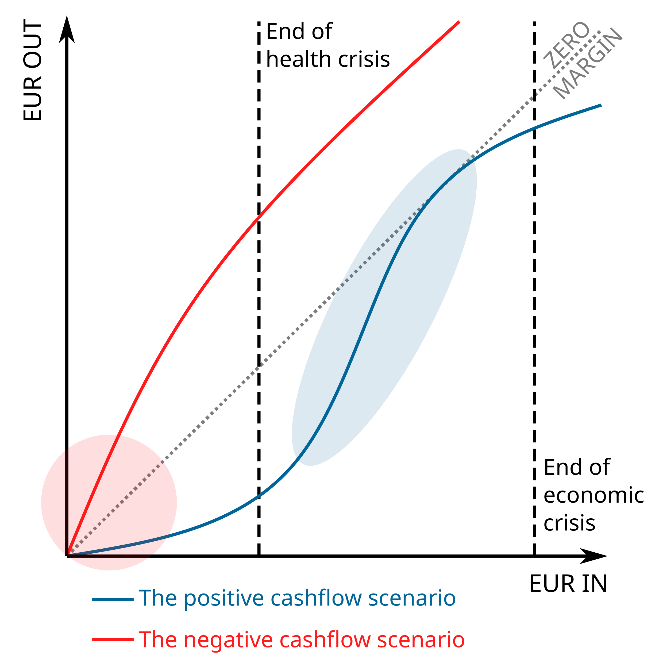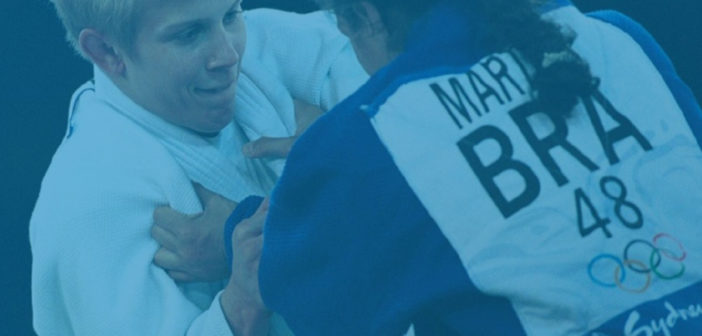We are in a mild lockdown, and it is the beginning of the third week, unknown territory to me, because it has never happened before. We have heard the Olympics are being postponed. And despite the fact that this was not decided in the context of war, the news was met with little fanfare, as if it were not really news at all. Our group is also asking for more solidarity than normal.
Bread and Games
We usually say “the show must go on”, but not this time. It’s only the fourth time in history that the Summer Olympics have been postponed. In 1916, 1940 and 1944 it was because of war, now it is due to the worldwide fight against COVID-19. The alarm bells started ringing for the Olympic Committee on 11 March. The reason was the announcement of the World Health Organization (WHO): COVID-19 was promoted from an epidemic to a pandemic. The alarm bells were not ringing in Tokyo, but the sponsors of the Games were starting to get cold feet. No sponsor wants to be associated with an event that endangers the health of athletes and visitors from all over the world. Later, some Olympic Committees also raised objections, and meanwhile, the athletes made themselves heard. The unthinkable had become a reality, but it was not yet fully known to the general public. This was because it took a while to convince everybody; the big news was only announced on 24 March. Once the Japanese were convinced of the global scale of the problem, everyone had to be consulted. Tokyo was convinced about the postponement, the date was changed to the summer of 2021. Procrastination is not cancellation, but the impact for a whole range of stakeholders is enormous. The bill for the decision is €2.45 billion, but this is and was the only option.
What was conspicuous about the decision was that the media did not really pay too much attention to it. Obviously it was reported, there were interviews with athletes, and some sports journalists did a bit of analysis, but the day after the decision, it was already a simple fact. Has it come to this? Is entertainment now just a side issue these days? Even when it comes to the most mythical event in the world? The Romans kept the people calm with bread and games. But we are doing it differently now. If there is a pandemic, there can be no games! All you can do is bake bread.
I feel sorry for the approximately 10,000 athletes who have been preparing and looking forward to these Games for four or eight years. For some athletes, these Games would have been the end of a long and illustrious career. It’s possible that competing at the highest level will be too much next year and they will not be able to do it. Some were in the shape of their lives. Their course for Olympic fame has been interrupted by a virus. And on the other hand, some athletes may be secretly happy it has been postponed. COVID-19 makes or breaks careers. The virus is catching up with us. Even one of the Games’ greatest myths has lost the battle. But a lost battle is not a lost war. Every crisis provides opportunities. The delayed Games may be experienced differently, but they could also be better. The Tokyo Games could be the best Games ever. The goal is to ensure every spectator will be more than happy to go home with the thought: these were the best Games ever and I was allowed to be there.
And it’s the same for our group. This crisis has hit us very hard, and we are requesting solidarity. Nevertheless, we can also see opportunities and in the end, we will come out stronger together.
As a company, we are embedded in an economic fabric. We lean close to our customers, as in the story of the Olympics. This is why we must be careful that the economic corona contamination does not spread to our group. Our show must go on.
We have many good customers who sympathise with us and want us to continue working for as long as possible. However, we are also currently receiving a growing list of customers who are in danger of getting into trouble themselves. They have asked us to reduce our daily price, to allow them to pay invoices later, or they have stated that the next project can only proceed if we drastically lower the project price. But we also have customers who may or may not have been obliged by the government to stop their activities. A chain reaction has already affected sectors such as aviation, entertainment, retail and hospitality. This reaction has caused a shock to their economic chain, which has come to a complete standstill.

Fortunately, as a service provider, we have not yet been affected too badly by the economic corona contamination. But we are taking some blows, and we must pay attention. We must also strictly apply and follow all the financial hygiene measures. Cash is king, especially in a crisis like this. Today, the economic virus is spreading rapidly, and far into the corporate world. We must ensure that some “sick customers”, who either don’t pay us or pay too late, do not cause our organisation to become ill. Cash plays a crucial role in the fight against the economic corona crisis. Euros are the doctors and nurses who will help us through it when we end up in the hospital. The measures that we have introduced in the past two weeks are tough and difficult, but they are our protective clothing.
For example, we will flatten our cash flow curve (see Figure 1) and remain safe below the zero margin curve. But this will ensure we can stay operational with positive cash flow (the blue curve) during this health crisis. During the coming economic crisis, we will then be able to continue our activities in a controlled manner and meet our obligations. The intention of all this is to return as a strong, profitable group at the end of the crisis.
You can think of our cash reserve as a kind of bazooka (like that of the European Central Bank, only a little smaller ?), which you can only use once. So the question is mainly: “When do we use our bazooka?” At the moment, during the first month of the lockdown, it is uncertain whether and how well our customers will pay their invoices. In other words, we are in the dark when it comes to how much cash we will receive in the short term. If we receive much less than expected and spend a lot quickly, we will end up in the red curve scenario with negative cash flow (the red curve). If less cash keeps coming in than goes out, we’ll be easy meat in a few months. In that case, we will have to immediately use up our bazooka. As I said earlier, and as shown on the graph, we are better to wait. And we don’t know what’s going to happen. It’s better to be careful if you can’t see what’s going on. We are better off waiting to use our bazooka after the health crisis as we gain more insight into the damage that it has caused. We may still be in an economic crisis, but we may also be in a recovery period quite quickly. Using the bazooka carefully between the end of the health crisis and the end of the economic crisis, we will be able to keep meeting all our obligations in a controlled manner without ending up in a scenario with negative margins. The payments are still being made, of course, even during a health crisis, but this controlled approach will ensure that, as a group, we will emerge from this crisis economically sound. I understand the concerns and doubts about the measures taken. However, they are a necessary protection measure. Sufficient cash keeps us out of intensive care. Rest assured, the bazooka is ready to be used if the intensive care scenario threatens to become reality.
I don’t want to learn to bake bread at all.
On 10 March, the authorities hesitantly wondered if they could ban events above 1,000 people. Because yes: “The show must go on”. On 13 March, the country entered a mild lockdown. A few days later we are all being checked by police drones. And it won’t be long before an app will let people know whether or not they can go outside.
Exponential tightening of the measures, I cannot think of another word when it comes to the restriction of our normal freedom. And yet Belgium is receiving compliments for its uniform national approach from the Financial Times. Maybe we’re not doing so badly, we should just take the limitations and go on. No matter how difficult it is. If you would like to understand the options offered by scientists and why the measures are necessary, you can take a look at this very instructive explanation.
One thing is clear: we want to tackle COVID-19 together. But why do we suddenly have to learn something new every day? Why do we suddenly have to do all the jobs we have put off previously? Why do we all have to stand behind the stove or sit on the yoga mat? I don’t want to learn how to bake bread, learn a new language, or clean up the attic. I want peace and time for myself to digest this surreal situation and to deal with the reality that is stressful for everyone today. We should all be free to choose how we want to deal with this crisis, because we cannot determine the outcome. Currently, I am using trial and error to try and focus on what I can control, and make the most of it. For the rest, I am simply trying to accept what is to come. Seemingly superhuman, especially in these times of crisis, but fortunately perfection cannot be expected. For the time being, I want to invite everyone, together with family, to enjoy the peace, the sun, the blossom, the bees, the birds, and the beautiful budding spring. You can also enjoy the bears that have been put in many windows, an idea that came from Australia. Children all over the world can now go “bear hunting” en masse. Making your children smile is the beauty of COVID-19.
Talk to each other regularly, and take good care of yourself.
#FlattenTheCurve #physicaldistancing #takecare #togetheragainstcorona
Take care & be safe
Wim
